Carbon Insetting: Capturing and Storing GHG Emissions to Mitigate Climate Change
Carbon Insetting: Capturing and Storing GHG Emissions to Mitigate Climate Change
Innovators for the Planet: UPLB and Nestlé PH Name First Set of IdeaNation Champions
 |
| The University of the Philippines Los Baños, together with Nestlé Philippines, celebrates youth innovation with its Net Zero IdeaNation competition. |
Innovators for the Planet: UPLB and Nestlé PH Name First Set of IdeaNation Champions
Tackling solid waste: Nestlé PH turns over materials recovery facility in Lipa City
Tackling solid waste: Nestlé PH turns over materials recovery facility in Lipa City
The growing solid waste management (SWM) problem in the Philippines can be attributed to factors such as improper waste disposal, inefficient waste collection, and the lack of disposal and recycling facilities in many cities and municipalities. While the solid waste collection rate varies across the country—ranging from 40 percent to 85 percent, it’s still evident how a sizeable portion of uncollected trash end up in the environment. In fact, out of the 2.7 million tons of plastic waste that the Philippines generates annually, an estimated 20 percent of these seep into the ocean.
Helping to shape a waste-free future as a top priority, Nestlé Philippines, one of the country’s largest food and beverage manufacturers, is tackling solid waste, especially plastics, with a holistic approach. The company is developing the packaging for the future, increasing collection and recycling efforts, and driving new behaviors and understanding through solid waste management (SWM) education.
In its latest initiative, Nestlé PH turned over a new materials recovery facility (MRF) in Barangay Bagong Pook in Lipa City, as part of its program to support the construction of MRFs in barangays. The turnover was attended by Lipa City Mayor Eric Africa, barangay officials and residents, officers from the City Environment and Natural Resources Office, and company representatives.
MRFs are essential for more efficient collection, segregation and recycling of wastes. As mandated by R.A. 9003 or the Ecological Solid Waste Management Act of 2000, each barangay or cluster of barangays in the country is required to establish an MRF.
According to the Department of Natural Resources and Environment (DENR), and the National Solid Waste Management Commission (NSWMC), only 35 percent of barangays nationwide have MRFs. The lack of an MRF is one of the challenges that barangays face in implementing their SWM programs.
Mayor Africa congratulated Barangay Bagong Pook officials and residents during the turnover. “My wish is for everyone to work together to maintain this structure so you can maximize its purpose for your barangay. Not only will this help the environment, it’s also a way to encourage discipline among residents and to learn more about the importance of proper waste segregation and recycling,” he said.
“Our old MRF was already too small to accommodate all the recyclable materials from our barangay. This new MRF is a great help because it can lessen the volume of waste we currently deliver to the city,” said Lope Lina, barangay chairman of Bagong Pook. “Our aim is that alongside our existing collection and recycling programs, this MRF will enable us to become a model barangay for solid waste management.”
“At Nestlé PH, it is important that we partner with local government units or LGUs in addressing solid waste management problems. We explore different opportunities for plastics to be recyclable in the country. Through the construction of this MRF, the community will be able to generate value through recycling and reduce the volume of plastic waste that goes to the landfill and oceans,” said Christine Ponce-Garcia, Sustainability Lead of Nestlé PH.
Nestlé Lipa Factory Manager Eric Angulo underscored the long-term partnership between the company and the barangay: “During our presence of 30 years in this community, we have formed a strong bond with its residents. We have been there for each other through thick and thin, especially in times of calamities and crises. Today, we sincerely hope that this MRF will help Barangay Bagong Pook to better manage their solid waste.”
Among its SWM milestones, Nestlé PH is the first multinational fast moving consumer goods company in the country to achieve plastic neutrality, recovering the equivalent amount of plastic it puts out in the market. From August 2020 to May 2022, it collected 48 million kilos of plastic waste. Another of its initiatives is the development and rollout of SWM education modules that reaches grades 1-10 students in 20,000 public schools nationwide under the Nestlé Wellness Campus program. Recently, DENR, NSWMC, and Nestlé PH also launched the No Time To Waste: Climate Change and SWM Talks for officials of LGUs and government agencies, and community leaders.
Climate Change Commission and Nestlé PH announce Klimathon Champions
Three teams emerged as winners in the recently concluded “Klimathon: Our Race Towards A Net Zero Reality,” a joint initiative of the Climate Change Commission (CCC) and Nestlé Philippines that provided a platform for the youth to develop innovative and sustainability-based solutions addressing the impacts of climate change.
Climate Change Commission and Nestlé PH announce Klimathon Champions
The Klimathon grand finals ceremony was held virtually on April 22, 2022 with the top ten finalists presenting their project concepts to the judges chaired by Dr. Maria Angela Zafra of the National Panel of Technical Experts of CCC, with members Ms. Adona Princesa San Diego of the Department of Environment and Natural Resources (DENR); Ms. Laarni Piloton of the Department of Science and Technology (DOST); Ms. Antoinette Taus, UNEP Goodwill Ambassador and founder of CORA Philippines; and Ms. Jasmine Estacio, Innovation Portfolio Management Head of Nestlé Philippines.
The proposals were judged based on their relevance to climate action, innovativeness, community impact, and sustainability.
Klimathon Champions
Team Econique from
the Ateneo De Naga University bagged the third place for their entry, “PH Green
Energy Harvesting Using Modified Triboelectric Nanogenerator (M-TENG),” while
Team Genoplas from The Mabini Academy placed second for their proposal,
“GENOPLAS: A Revolutionary Sustainable Multifunctional Bioplastics from
Upcycled Fish Waste Components.”
Team Neutralizer from the University of Mindanao emerged as the first-ever Klimathon Champions with their project concept, “Synthesis of Engineered Bamboo Nanocomposite Through Sol-Gel Technique: A Breakthrough in Automated Vertical Farming using Hydroponics in the Philippines.
“We are really honored to become the first-ever Klimathon Champions. All our hard work over the past six months to hone and improve our proposal has been worth it. We would like to thank CCC and Nestlé Philippines for believing in what the youth can do for the environment; for giving us the opportunity to showcase our ideas and learn first-hand from industry experts through the mentorship program,” said Jeremiah Malalis and Larry Competente from Team Neutralizer
The top three winning
teams received cash prizes that they can use as seed money to further develop
and/or implement their project concepts. Special awards were also given to
teams that developed embodying and promoting gender empowerment, originality,
and community participation:
- Team
Genoplas - Gender Empowerment
- Team
Econique - Originality
- Team
Tagubtub - Community Participation
“As we commemorate Earth Day, let us continue to invest more in our youth, in our communities, and in our creativity and intellect as a nation towards sustainability and resiliency. This is the only way to go in order for us to secure a better future for our nation,” said Secretary Robert E.A. Borje, Vice-Chairperson and Executive Director of CCC.
Youth as inheritors of the planet
During the program, House Deputy Speaker Loren Legarda expressed her support for the Filipino youth and what they are doing for the environment through a special message.
“It is encouraging to see young people already very heavily involved in climate action, all the more because you are doing this in the face of immense challenges and uncertainties because of the pandemic. You are an inspiration to us all,” Deputy Speaker Legarda said. “The next few years ahead will be critical in securing a livable future for humanity. To do so, we will need to stimulate and scale up innovation. The youth of the world are going to be key partners in this endeavor.”
The youth
participants committed to use their capabilities toward net-zero greenhouse
gas (GHG) emissions through the Klimathon Pledge led by Ms. Antoinette Taus.
In his closing
remarks, Nestlé Philippines Chairman and CEO Kais Marzouki emphasized the
importance of initiatives like the Klimathon in keeping with the inclusive
approach of empowering the youth and consumers to take action.
“Through Klimathon, we are privileged to be able to work with the youth in particular, providing a platform for developing science-based solutions to climate change,” he said. “To our youth participants, you are among the most passionate and creative members of society, and you can make a difference. It is for you to apply the knowledge and insights that you have gained, to be the changemakers that the world needs today.”
In order to achieve
its goal of net-zero GHG emissions by 2050, Nestlé Philippines continues to engage
in partnerships with like-minded stakeholders and work with different sectors
in the country.
A Net Zero IdeaNation: UPLB and Nestlé PH partner to generate sustainable solutions from the youth
A Net Zero IdeaNation: UPLB and Nestlé PH partner to generate sustainable solutions from the youth
Stronger typhoons and rising
threats to biodiversity and food security are just some of the impacts of
climate change that have become more evident in the Philippines over the years.
Therefore, tackling climate change cannot wait and urgent action is needed
across all sectors of society.
As a Kasambuhay ng Kalikasan, Nestlé Philippines is taking a leading
role in tackling climate change in the country. Guided by Nestlé’s global
ambition and roadmap of net zero greenhouse gas emissions by 2050, it is committed
to source responsibly, transform its
operations, and help shape a
waste-future.
These three Net Zero focus areas
are the central theme for Net Zero
IdeaNation, a program launched by the University of the Philippines - Los
Baños (UPLB) through the Department of Agribusiness Management and
Entrepreneurship (DAME), and Nestlé Philippines to harness the potential of the
youth towards climate action. The partnership was made official with a recently
signed agreement between the two parties.
What
is Net Zero IdeaNation?
Net Zero IdeaNation consists of
two phases. The first phase will run throughout the second semester of Academic
Year 2021-2022 during which students of the ABME 10 (Foundations of
Entrepreneurship) course will be asked to generate innovative and sustainable
solutions geared towards achieving net zero emissions. By the end of the
course, the teams with the best concepts will be selected to proceed to the
second phase of the competition in July 2022.
During the second phase, the winning
teams will receive mentorship from industry experts to further develop their
ideas. All will culminate through a pitching competition in which one team will
be named the Nestlé Net Zero IdeaNation Winner.
“This undertaking will be an
excellent mentoring opportunity for our students, that will further inspire
them to become innovative and creative in helping find solutions and avenues
for sustainable business,” said UPLB Chancellor Dr. Jose V. Camacho, Jr., “Our
vision is a future-proof UPLB in society with its stakeholders and communities.
We hope to engage actively with industry, and this new form of partnership with
Nestlé Philippines will significantly contribute to enhancing the quality of
education in the university amidst the pandemic.”
Nestlé Philippines Senior Vice
President for Public Affairs, Communications and Sustainability Arlene Tan-Bantoto
recognized the capability of the youth in being agents of change in society and
creating a lasting positive impact on the environment.
“Engaging the youth in climate
action is important because of their crucial role in ensuring a livable future on
the planet they will inherit. Through initiatives like this, Nestlé Philippines
aims to empower the youth and provide them platforms that they can use to help
address environmental problems that affect not just our country but the rest of
the world,” she said.
Nestlé Philippines also offers a
post-graduate sustainability scholarship in partnership with the UPLB Graduate
School.
USAID, Nestlé Philippines Partner to Support LGUs in Solid Waste Management and Climate Impact Reduction
USAID, Nestlé Philippines Partner to Support LGUs in Solid Waste Management and Climate Impact Reduction
Manila—To mark the Philippines’ Zero Waste Month in January, the United States Agency for International Development (USAID)—through its Clean Cities, Blue Ocean (CCBO) program—and Nestlé Philippines, Inc. partnered to help local government units (LGUs) and community leaders better understand the link between climate change and solid waste management.
Tetra Tech’s Rene Acosta, CCBO Asia Regional Director, and Nestlé Philippines Senior Vice President Arlene Bantoto signed the memorandum of understanding on January 31.
Together, USAID and Nestlé Philippines committed to share practical tips about improving local solid waste management, increase communities’ access to solid waste management education, and implement Nestlé Philippines’ Climate Change and Solid Waste Management Education Program.
“Combatting ocean plastics pollution is a challenge that requires strong partnerships,” said USAID Philippines Mission Director Ryan Washburn. “USAID is pleased to partner with Nestlé Philippines in supporting local governments to reduce waste-linked contributions to ocean plastics and the climate crisis.”
The Philippines generates an estimated 2.7 million tons of plastic waste annually, of which 20 percent is estimated to end up in the ocean. While the country has legislation on solid waste management, LGUs sometimes struggle to implement and enforce regulations.
By extending Nestlé Philippines’ Climate Change and Solid Waste Management Education Program to USAID CCBO engagement sites in Metro Manila and Iloilo, USAID and Nestlé Philippines will support local government efforts to enhance their solid waste management systems and develop resilience to climate change.
“As a food and beverage manufacturer with a major presence in the country, we are called upon to be at the forefront in helping tackle the urgent issues of climate change and plastic waste. As Nestlé Philippines sustains plastic neutrality, and other pioneering initiatives for the environment, it is important for us to help capacitate people at the grassroots level,” said Nestlé Philippines Chairman and CEO Kais Marzouki. “We welcome this partnership with USAID Philippines and look forward to working with other partners as we accelerate our journey toward a waste-free future.”
USAID launched CCBO in August 2019 as its flagship program to respond to the ocean plastics pollution crisis. The five-year (2019-2024), $48-million (Php2.5-billion) program works at the global level and in specific countries like the Philippines to address ocean plastics directly at their source.
By strengthening waste management systems and building circular economies city by city, the program builds sustainable solutions that reduce ocean plastics while empowering vulnerable populations and mitigating pollution that affects human health and the climate.
For more information, please visit www.urban-links.org/ccbo.
Youth for the environment: Climate Change Commission and Nestlé PH gather the brightest ideas for climate action at the Klimathon Finalist Showcase
 |
| KLIMATHON: Our race towards a Net Zero Reality Finalist showcase was held last January 25, 2022 #ClimateActionPH #SustainablePH #KasambuhayNgKalikasan |
Youth for the environment: Climate Change Commission and Nestlé PH gather the brightest ideas for climate action at the Klimathon Finalist Showcase
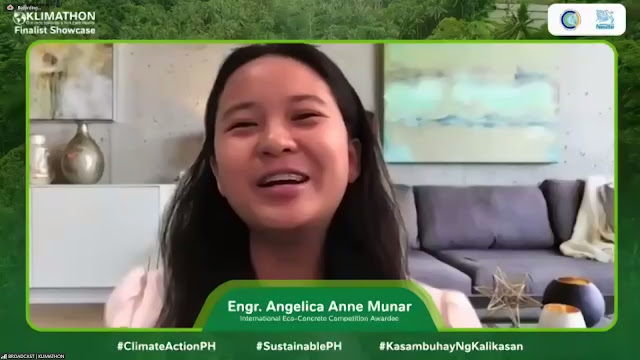 |
| Engr. Angelica Anne Munar, winner of the International Eco-Concrete Competition in 2019 and youth innovator, gave her words of wisdom and advice to the finalists |
Nestlé Philippines Named Among Top Workplaces in Asia at the ACES Awards 2021
Nestlé Philippines Named Among Top Workplaces in Asia at the ACES Awards 2021
Nestlé Sustainable Lifestyle Webinar Series: Learning and Doing More Together for the Planet
 |
| Being a Kasambuhay for the Environment #DoMoretogether #KasambuhayForTheEncironment |
Nestlé Sustainable Lifestyle Webinar Series: Learning and Doing More Together for the Planet
Environmental awareness is the first step towards
living sustainably. For us to make effective lifestyle changes and better
choices for the planet, we must know more about the problem and understand what
steps we can take as individuals and a nation to be part of the solution.
So, how do we do this? We can begin by doing our own research. The internet has enough resources to walk us through the current climate situation and how we can lessen our impact to the environment. We can also learn more about sustainable organizations and companies to support and how we can be part of their cause.
Nestlé Philippines, as a Kasambuhay for
the Environment, places great importance on solid waste management education. Throughout
the month of September, it held a series of webinars that discussed how
consumers can practice a more sustainable lifestyle and become environmental Kasambuhays
themselves.
“We believe in the power of education to inspire
and encourage people to take the necessary steps to live more sustainably. Knowing
how leads us to take action,” said of Nestlé Philippines Chairman and CEO Kais
Marzouki.
Facilitated by Ms. Anna Oposa, Executive
Director and Chief Mermaid of Save Philippine Seas SPS), the webinars featured
simple and easy ways for parents, young professionals, and students to practice
low waste living and responsible solid waste management in their homes and
communities.
 |
| Attendees learned 3 ways different ways to do more together from home: low-waste ways to cut down on consumption, proper waste segregation and composting! |
Here are just some of the topics that were
covered:
Be a waste watcher
Before we’re able to reduce the waste that we
consume (plastics, especially), we must first assess the amount of waste we
produce and what mostly make up the contents of our trashcans. Ms. Oposa
recommended using templates such as SPS’ Waste Watch Report Card to keep track
of what products and items we usually use and dispose and assess what we can lessen
or replace moving forward. You can download a copy of this on Nestlé’s website.
Practice low-waste habits
Throughout the sessions, the attendees were able
to learn tips and tricks to reduce their plastic waste consumption. These are
as simple as buying in bulk when doing the groceries to cut the amount of
plastic packaging, opting to purchase products that are more sustainable and
eco-friendly, and using reusable alternatives to plastics, among others.
Segregate your waste
Segregation plays a big part in diverting
plastic waste away from the environment because this creates higher value for
plastics and gives them a higher chance for recovery and recycling. There are
three main categories of waste: recyclables, biodegradable, and residuals. For
recyclables and residuals with potential for recycling, it’s important to make
sure that the items are clean and dry before dropping off to collection points
to make the recycling process much easier.
When it comes to their journey towards a more
sustainable lifestyle, Ms. Oposa advised the attendees to aim for progress, not
perfection. “When we aim for perfection, there’s a tendency for us to get
overwhelmed and when we get overwhelmed, parang nagkaka-analysis
paralysis tayo and we don’t know how to act from there. But if we aim
for progress, we can focus on one or two things first, do it well and
consistently, and before you know it, it’s part of your lifestyle already. You
just keep doing it and then you'll see other people doing it as well. We are
all multiplying our environmental practices,” she said.
 |
| Different groups from parents, professionals and the youth attended the webinars to learn more about how we can do more together for the planet. |
As the largest food and beverage company in the country,
Nestlé Philippines recognizes its responsibility to take a leading role in
tackling the plastic waste crisis. The company’s ambition is for all Nestlé
packaging to be 100% recyclable by 2025 and to reduce its virgin plastic use by
1/3 by 2025. It is also committed to collect and process the equivalent amounts
of plastics used in its packaging so that these do not end up in the
environment. This year, Nestlé Philippines is celebrating its first full year
of plastic neutrality, having collected and diverted from oceans and landfills over
27,000,000 kilos of plastic from August 2020 to July 2021 which is equivalent
to the amount of plastics it put out into the market.
There is much more to be done to protect the planet
from waste, especially plastic waste. Just like Nestlé Philippines, consumers
can also be plastic neutral in their own ways. Nestlé has provided education
resources as well as information on collection points. To download solid waste
management modules, you can visit Nestle’s website. After segregating your waste at home, collect and drop off your
plastics at any of these plastic collection points across the country to have them processed or recycled. You can also help in building
Nestlé’s list of these collection points by visiting rplr.co/PlasticDropPH. We can #DoMoreTogether
and be a #KasambuhayForTheEnvironment.
Nestlé local coffee buying up 39%, joins TESDA to train coffee scholars
 |
| Together with TESDA, Nestlé remains steadfast to its commitment in nurturing the next generation of coffee farmers and uplifting their livelihood. |
Nestlé local coffee buying up 39%, joins TESDA to train coffee scholars
Significant increase in local coffee buying
 |
| Nestle continues to support our local coffee farmers by buying 39% more Robusta coffee beans in 2020 |
Upskilling coffee farmers with TESDA




.jpg)
.jpg)
.jpg)
.jpg)

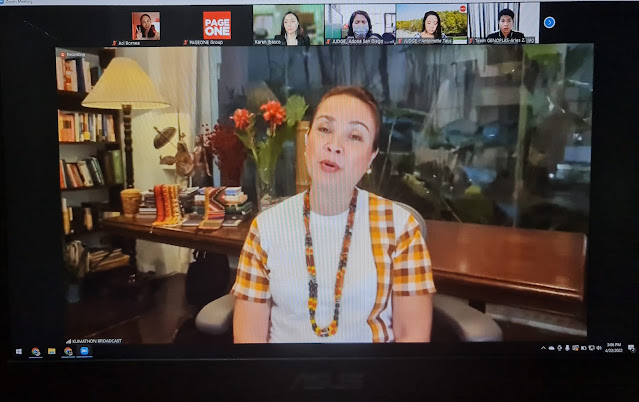
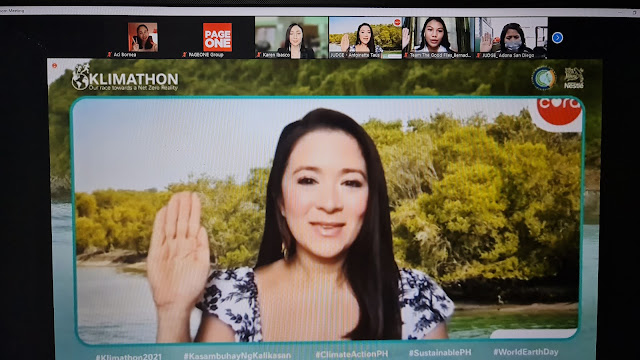


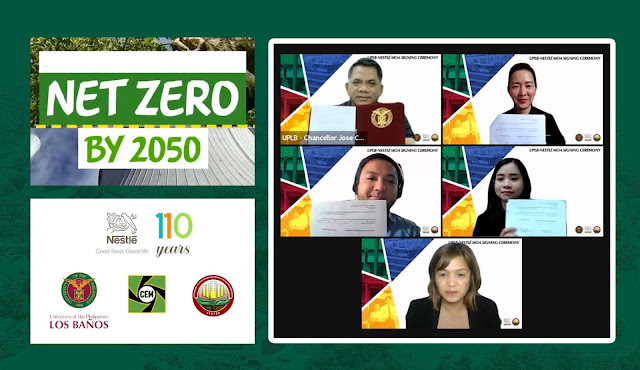



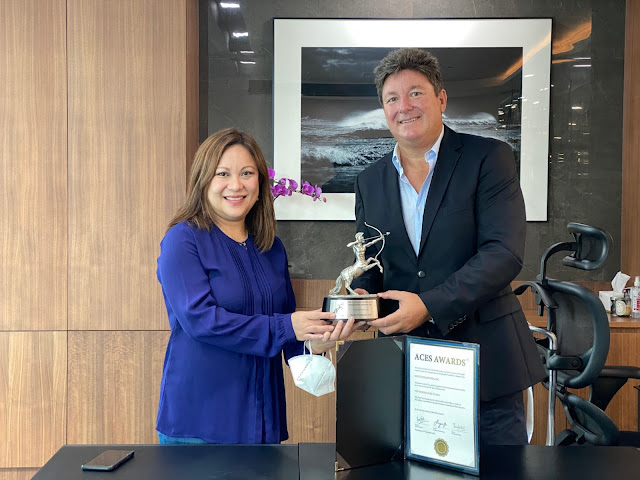





.jpg)
